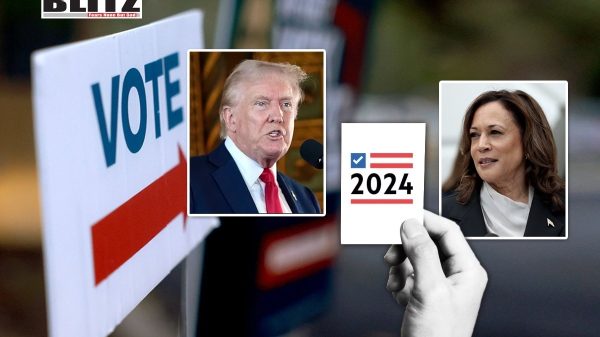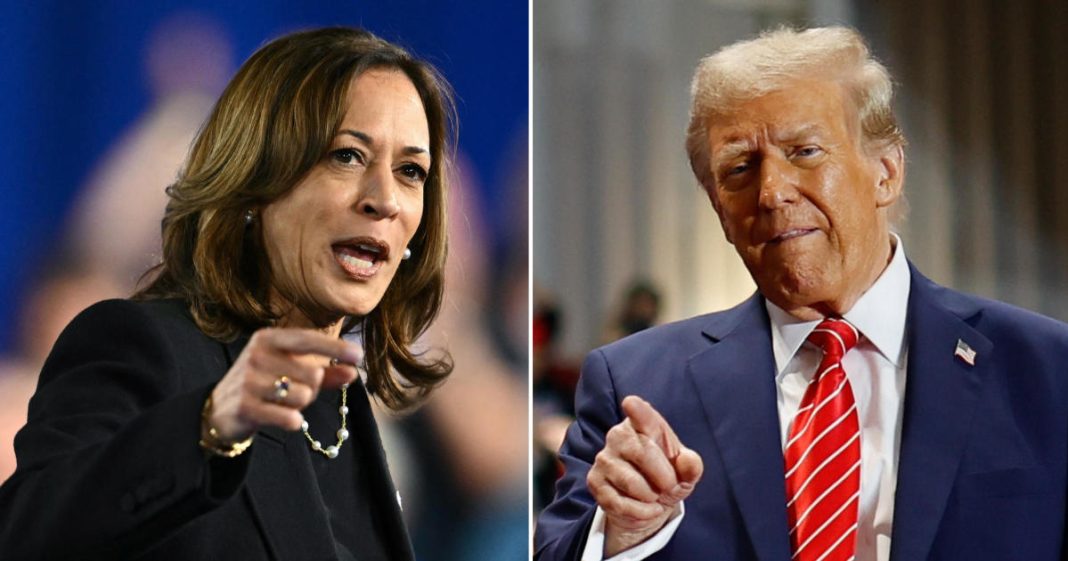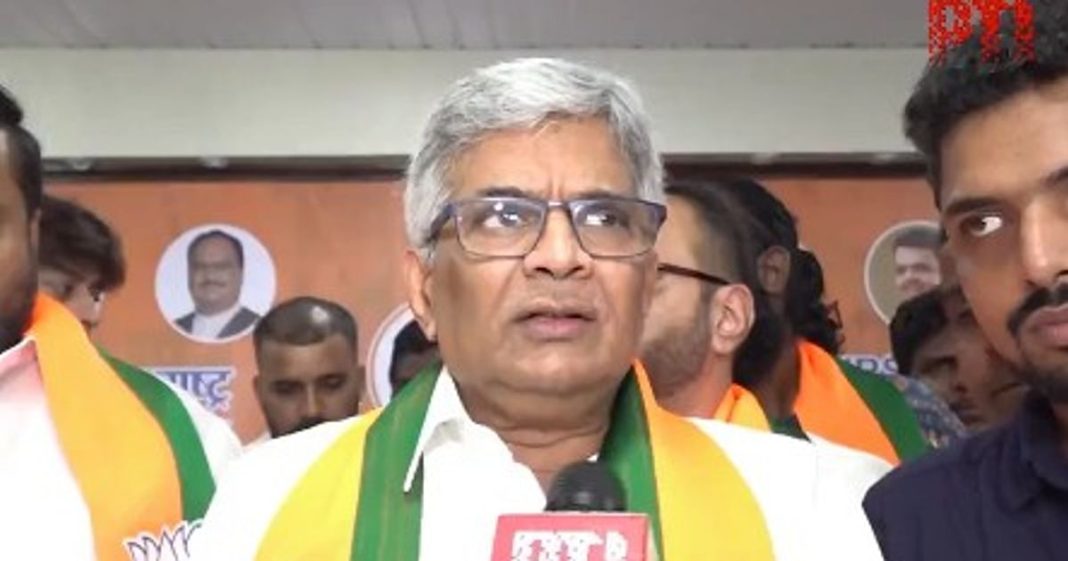2024 Presidential Election: A Crossroads for America Amid Global Turmoil
As the 2024 U.S. presidential election looms on the horizon, the political climate feels reminiscent of the Cold War era, charged with tension and division. Since 2016, American society has become increasingly polarized, with the rivalry between former President Donald Trump and his Democratic opponents, including current President Joe Biden, taking center stage. Biden’s ascent to the presidency was largely fueled by public dissatisfaction with the government’s handling of the COVID-19 pandemic, but as his administration grapples with both domestic and international crises, questions about his effectiveness are surfacing.
While media narratives often spotlight hot-button issues like abortion, immigration, inflation, and tax policies, foreign policy is emerging as a crucial factor for swing voters, particularly in key demographics such as Arab Americans. The ongoing conflicts in Ukraine and Gaza are not just reshaping global alliances; they are also influencing voter sentiment as America approaches election day.
Under Biden’s leadership, the U.S. has taken a strong stance in support of Ukraine amid its high-stakes confrontation with Russia. This has involved bolstering NATO’s presence in Eastern Europe, igniting one of the most significant conflicts on the continent since World War II. As Russian President Vladimir Putin continues to resist what he views as NATO encroachment, the situation in Ukraine remains precarious, with its citizens bearing the brunt of the conflict. Despite sanctions and diplomatic efforts from the West, Russia’s resolve appears unyielding, as evidenced by Putin’s vision for a "multipolar world order" showcased at the recent BRICS summit.
Biden’s unwavering support for Ukraine has strained relations not only with Russia but also with American allies in Europe. The economic fallout from the conflict is palpable, with fuel shortages and soaring prices underscoring the costs of sanctions against Russia. Europe, grappling with an influx of refugees and strained social systems, is heavily reliant on U.S. leadership to navigate potential ceasefires and resolutions. This dependency highlights the broader implications of a conflict that shows no signs of resolution, leaving both the U.S. and its allies vulnerable to Russian influence and economic instability.
In the Middle East, perceptions of U.S. disengagement under the Biden administration have emboldened regional powers. Israeli Prime Minister Benjamin Netanyahu’s approach to the Gaza conflict reflects a calculated assessment of Biden’s relatively passive stance. This perception is echoed by Iran-aligned factions, who view U.S. foreign policy as inconsistent, potentially leading to regional escalation. A direct confrontation between Israel and Iran’s allies could have dire consequences for both regional stability and global diplomatic relations.
The Biden administration’s policies in the Middle East also present challenges for Democratic candidates, including Vice President Kamala Harris, who is campaigning to continue Biden’s legacy. Harris’s foreign policy positions have drawn scrutiny from communities deeply invested in the region’s stability. Her recent comments about "ending the suffering" in Gaza seem at odds with her steadfast support for U.S. military aid to Israel, revealing divisions within the Democratic Party. For many Arab American voters, her words ring hollow as they seek genuine support for Palestinian rights and a more balanced approach to the region’s complex issues.
The interplay between American foreign policy and domestic economic priorities further complicates the election landscape. Economic interests often overshadow ideological commitments, with the military-industrial complex reaping substantial profits from ongoing military engagements abroad. The Ukraine conflict alone has driven billions in defense spending, benefiting defense contractors while leaving taxpayers to shoulder the long-term costs. Political scientist Samuel P. Huntington once noted that the West’s global influence stemmed not from superior values but from an effective application of "organized violence." This observation underscores how financial and military motivations often eclipse humanitarian concerns.
The ramifications of this "savage capitalism" extend beyond foreign policy, reverberating through America’s domestic economy. Resources allocated to foreign conflicts could otherwise fund education, healthcare, or infrastructure. As Americans grow increasingly critical of the prioritization of military expenditure over domestic welfare, this sentiment could sway voters seeking leaders committed to improving living standards at home.
For Europe, the outcome of the 2024 election carries profound implications. The continent has already faced severe economic strain due to its alignment with U.S.-led sanctions and NATO’s involvement in Eastern Europe. As the conflict in Ukraine drags on, Europe must decide whether to maintain its reliance on U.S. guidance or pursue a more independent course that considers its unique geopolitical and economic needs.
European leaders are grappling with how to address a resurgent Russia while contending with an increasingly assertive China and persistent instability in the Middle East. To navigate this turbulent period effectively, Europe must articulate a cohesive foreign policy that balances its alliance with the U.S. and its need for self-determined stability.
Meanwhile, the Arab world, particularly the Gulf states, is in a transitional phase, with U.S. influence appearing to wane. Many analysts predict an eventual American withdrawal from the region, signaling a need for greater cooperation among Arab nations to prioritize sustainable development and security without relying on U.S. support. However, this trend toward regional independence brings its own challenges, as Gulf nations must redefine their partnerships in light of shifting global power structures.
As these geopolitical shifts unfold, the Biden administration’s approach to the Middle East raises critical questions about America’s future role: Is the U.S. disengaging from the region, or simply recalibrating its involvement to fit a new strategic vision? The answer will undoubtedly impact the alliances and political stability of Middle Eastern nations already on edge from ongoing conflicts.
As the election approaches, concerns about American leadership are amplified by declining public trust and a lack of moral clarity. In his novel The Emperor’s Tomb, Joseph Roth explored the unraveling of powerful empires—a theme that resonates with today’s American voters who fear that political polarization and ineffective leadership may signal a similar decline. Many Americans yearn for a presidency that embodies unity and vision, qualities essential for guiding the nation through its current domestic and international challenges.
The 2024 election stands as a crossroads for the United States, where the choice of leadership will not only shape the future of the country but also influence the broader global landscape. For voters, a thoughtful evaluation of both domestic policies and foreign relations is crucial as they weigh the direction they wish to see America take. To navigate the complex terrain of modern geopolitics, America needs leaders who prioritize unity, uphold ethical standards, and make informed decisions that benefit both U.S. citizens and the international community.
As America prepares to make this pivotal choice, the public and policymakers alike must strive for a balanced approach, recognizing the intricate connections between local well-being and global relations. Only then can the nation move forward with clarity, stability, and purpose in an era fraught with unprecedented challenges and possibilities.



